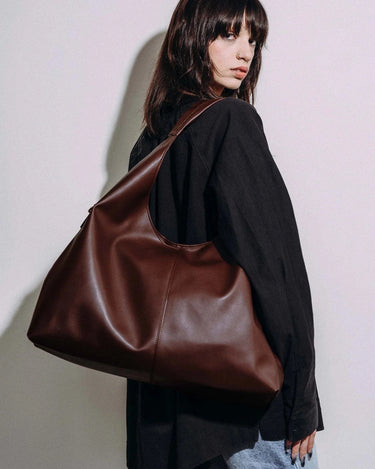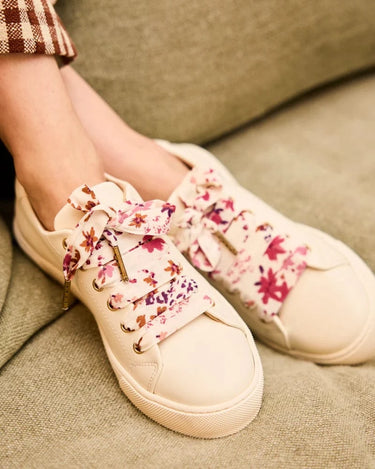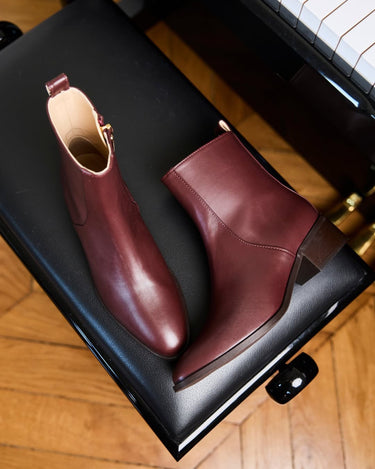Six Ways to Stay Sustainable as Costs Rise
Headlines have been screaming it for months: the cost of living is skyrocketing. The UK's annual inflation reached 10.1% this year, and across Europe, numbers aren't much more positive. In the US, inflation reached its highest point in 40 years this September, proving that in many parts of the world, everyday life is getting more and more expensive.
By Sascha Camilli: writer, speaker, activist, and vegan fashion expert.
In these tricky times, it can be difficult to keep a sustainable mindset and an ethical way of living – after all, ethically made products can put a serious dent in a budget and priorities are shifting as bills creep up. And even before the cost-of-living crisis, a part of the population found sustainable living too pricey. But does living with an ethical mindset really have to be expensive? The answer isn't black and white, but one thing is certain: there are ways to live ethically on a budget.
Start with what's on your plate
One of the best ways to live in a way that is positive for the environment is to choose vegan meals – and we now have proof that living vegan is the cost-cutting way to eat. Research from Oxford University has found that vegan diets can cut costs by up to a third, which is welcome news for your wallet and the planet. PETA and The Vegan Society offer some good advice on eating healthy and affordable meals on a vegan diet: choose beans, grains and pulses rather than costly meat alternatives, become an expert discount checker, and get into meal prep.
Need some inspo? There are lots of delicious budget vegan meal ideas out there, including these 54 cheap vegan meals, and 30 cheap vegan meals that taste expensive, which includes some great dinner party ideas too.
Make walking your new favourite hobby
Rather than driving or grabbing an Uber, see if there's an option to walk – not only is this healthier and obviously cheaper, but it will cut the environmental impact of transportation, which is far from negligible: transport is responsible for 26% of greenhouse pollution, and while a lot of that is related to industries, individuals can certainly do their part – and avoid soaring petrol prices – by taking a walk when possible. Plus, walking is a great way to get to know your area better and become more familiar with new areas.

Choose pre-loved fashion
If you haven't gotten into second-hand fashion yet, now is the time. Not only is the selection of available options bigger than ever, but getting thrifty is on trend: second-hand fashion is now accepted by the style set as an exciting, conscious way to shop. Your wallet will thank you, and so will the Earth: second hand is arguably the most eco-conscious way to shop, as you're keeping existing items in circulation – and out of landfill – rather than using new resources. Second-hand is a great step towards circularity in fashion, and a perfect way to freshen up your wardrobe without putting too much strain on the planet. Bonus: have clothes you no longer wear? Sell them on second-hand fashion sites to give them a new life (and make some extra money).
Host a clothes-swapping event
Craving a new wardrobe but don't have the cash to spend? Chances are, in these times of rising costs, many of your friends are feeling the same way. The answer lies in all of your existing wardrobes: throw a clothes-swapping party where everyone brings the garments they no longer wear, and swap away. Not only will this salvage the clothes from ending up in the rubbish, but it will also provide your style with the refresher it needs – all without spending a penny (well, except for snacks. Got to have the stamina to keep swapping!)
Redecorate your home minus the spend
Decorating, whether you just moved into a new home or are just itching for a fresh look for you abode, is a fun and creative but costly task. Furniture and other home items often come with a hefty price tag, but you can get amazing deals (and often entirely free stuff) on community giveaway groups and Facebook Marketplace. Once again, giving these items a new chance at life will keep them out of landfill and save you a brand-new, possibly polluting purchase. Keep your eyes peeled for deals and stay open-minded: yes, you came for a sofa, but chances are that this is your only chance at that coffee table that your neighbour is giving away for free. Remember that often, these deals come with self-collection, so make plans to pick up your new item.
Adopt a minimalist skincare routine
Forget slathering your face with a million lotions and potions: did you know that often, when it comes to skincare, less is more? Using too many products comes with the risk of irritation to the face and...breakouts. Yes, you read that right. Skincare expert Alice Jenkins says: “On average, our skin can only absorb up to 60 per cent of what is put on it – anything more than that will just sit on the surface, clogging up your pores, suffocating the skin and affecting its barrier and the way it works." So, streamlining your routine helps your face, saves precious pounds, and keeps all of that packaging from polluting the planet. Considering that the industry pushes out more than 120 billion units of packaging every year, that's no small feat. So choose well and limit your routine to the essentials.
By Sascha Camilli
About Sascha
Sascha Camilli is a vegan fashion writer, speaker and activist. Her book Vegan Style is out now on Murdoch Books. For more about Sascha, you can read our interview with her. You can also follow her on Instagram, Twitter and LinkedIn.
Cover image by Micheile Dot Com, second photo by Alyssa Strohmann, both via Unsplash
For more great content like this in your inbox, sign up to our newsletter, and save 10% off your next purchase, plus great savings throughout the year.
Related Articles

How To Have A Very Vegan Valentine's Day

Why Veganuary Is Still Relevant
















































































































